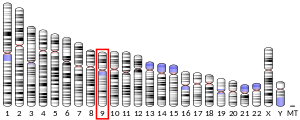| FBP2 |
|---|
|
| Available structures |
|---|
| PDB | Ortholog search: PDBe RCSB |
|---|
| List of PDB id codes |
|---|
3IFA, 3IFC, 4HE0, 4HE1, 4HE2, 5ET7, 5ET5, 5ET6 |
|
|
| Identifiers |
|---|
| Aliases | FBP2, fructose-bisphosphatase 2, CORLK |
|---|
| External IDs | OMIM: 603027; MGI: 95491; HomoloGene: 55784; GeneCards: FBP2; OMA:FBP2 - orthologs |
|---|
| Gene location (Human) |
|---|
 | | Chr. | Chromosome 9 (human)[1] |
|---|
| | Band | 9q22.32 | Start | 94,558,720 bp[1] |
|---|
| End | 94,593,824 bp[1] |
|---|
|
| Gene location (Mouse) |
|---|
 | | Chr. | Chromosome 13 (mouse)[2] |
|---|
| | Band | 13|13 B3 | Start | 62,984,691 bp[2] |
|---|
| End | 63,006,236 bp[2] |
|---|
|
| RNA expression pattern |
|---|
| Bgee | | Human | Mouse (ortholog) |
|---|
| Top expressed in | - biceps brachii
- vastus lateralis muscle
- triceps brachii muscle
- gastrocnemius muscle
- thoracic diaphragm
- body of tongue
- deltoid muscle
- body of stomach
- secondary oocyte
- fundus
|
| | Top expressed in | - ileum
- duodenum
- jejunum
- morula
- blastocyst
- intestinal epithelium
- intestinal villus
- Paneth cell
- left colon
- crypt of lieberkuhn of small intestine
|
| | More reference expression data |
|
|---|
| BioGPS | |
|---|
|
| Gene ontology |
|---|
| Molecular function | - phosphoric ester hydrolase activity
- catalytic activity
- hydrolase activity
- protein binding
- metal ion binding
- phosphatase activity
- fructose 1,6-bisphosphate 1-phosphatase activity
- identical protein binding
| | Cellular component | - cytoplasm
- cell junction
- Z disc
- extracellular exosome
- nucleus
- nucleoplasm
- cytosol
- plasma membrane
| | Biological process | - fructose metabolic process
- metabolism
- dephosphorylation
- sucrose biosynthetic process
- fructose 6-phosphate metabolic process
- gluconeogenesis
- fructose 1,6-bisphosphate metabolic process
- carbohydrate metabolic process
| | Sources:Amigo / QuickGO |
|
|
| Wikidata |
| View/Edit Human | View/Edit Mouse |
|


















